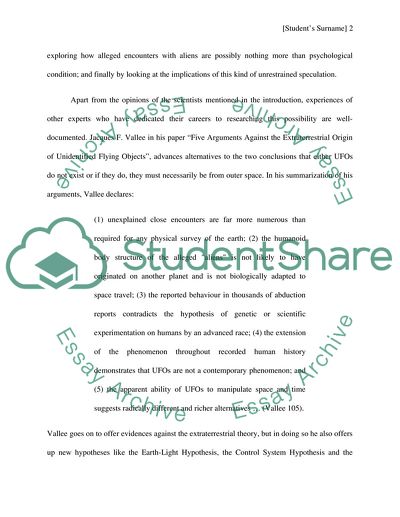Cite this document
(“The Possibility of Extra-Terrestrial Life Research Paper”, n.d.)
The Possibility of Extra-Terrestrial Life Research Paper. Retrieved from https://studentshare.org/science/1737778-do-aliens-exist
The Possibility of Extra-Terrestrial Life Research Paper. Retrieved from https://studentshare.org/science/1737778-do-aliens-exist
(The Possibility of Extra-Terrestrial Life Research Paper)
The Possibility of Extra-Terrestrial Life Research Paper. https://studentshare.org/science/1737778-do-aliens-exist.
The Possibility of Extra-Terrestrial Life Research Paper. https://studentshare.org/science/1737778-do-aliens-exist.
“The Possibility of Extra-Terrestrial Life Research Paper”, n.d. https://studentshare.org/science/1737778-do-aliens-exist.


